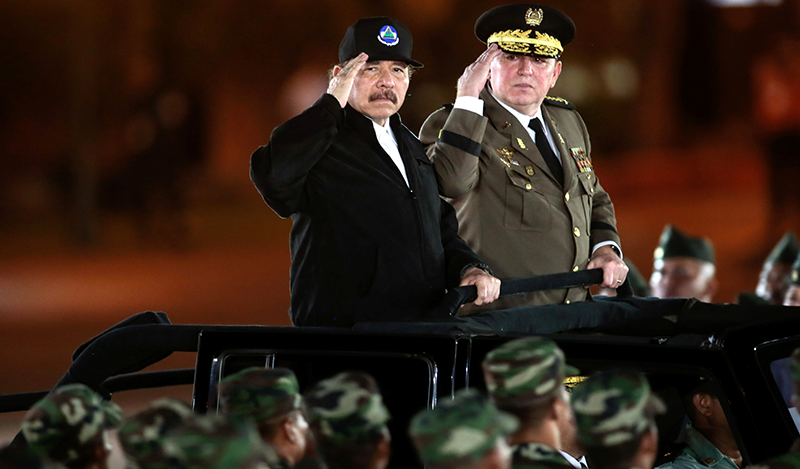
Nicaragua’s National
Coalition (Coalicón Nacional),
comprised of disparate opposition parties, is splintering under the duress of
Daniel Ortega’s police state and the weight of its own internal contradictions.
Smelling blood in the water, Ortega is pressing his advantage. The month of
October witnessed a flurry of legislative activity by Ortega’s ruling Sandinista
National Liberation Front Party (FSLN). A suite of packages has resulted in
further consolidation of Nicaragua’s authoritarian landscape.
First, Ortega and Murillo expanded the definition of domestic terrorism and coupled it with the possibility of life sentences in prison. Then came the Putin-inspired “foreign agents” law, which will stifle international organizations, NGOs, and foreign media outlets seeking to report on the grave human rights situation in the country. The stigma associated with the “foreign agent” label will have the effect of bifurcating “good” Nicaraguans (read: those who support Ortega and the ruling FSLN) from the rest.

Most recently, Nicaragua’s National Assembly passed a cybercrimes bill, which does not intend to deter cybercrimes, but rather establishes several years in prison for “those who promote or distribute false or misleading information that causes alarm, terror, or unease in the public.” Under Article 30, the law permits the ruling regime to define what constitutes “false or misleading information,” reserving for Daniel Ortega and his wife, Vice President Rosario Murillo, the role of judge, jury, and executioner. The Committee to Protect Journalists has said that the cybercrimes law is nothing short of a “gag law” on the Nicaraguan opposition.
The cybercrimes law is a potentially potent weapon in the hands of a prickly dictatorial duo. Aggrieved members Ortega’s FSLN will no doubt avail themselves of the provisions to silence everyday Nicaraguans who have damaged the “honor, prestige, or reputation” of high-level public figures. If vigilantly enforced, Nicaragua’s internet — hitherto largely open despite the repressive nature of the country’s regime — could become one of the most closed in Latin America, placing it on par with the slow speed and censorship of Venezuela and Cuba.
The open nature of Nicaragua’s internet is something the Ortega regime will not countenance, as he moves to shut down one of the few spaces for opposition organization remaining in the country. The appalling siege warfare tactics against churches dispensing aid in the wake of Hurricane Eta’s devastation proves that the Ortega regime seeks to stamp out civil society, in both its digital and physical manifestations.
Rumors abound that more sweeping changes could be in the offing, too. Indeed, Ortega is said to be weighing an amendment to Nicaragua’s constitution that would convert the country from a presidential to a parliamentary system. To get around long-standing constitutional limits on the presidency, which Ortega has flouted since at least 2011, the dictator would move to become Nicaragua’s prime minister (another Putin-inspired maneuver). In a case of Orwellian “doublethink,” Ortega and Murillo will likely co-opt several political parties in upcoming elections to run on a so-called “liberal agenda.”
However, there is a strategic rationale to these maneuvers, too. Escalatory measures distract from the broader, technocratic effort at electoral reform demanded by the Nicaraguan opposition and a recent resolution passed by the Organization of American States (OAS) regarding Nicaragua’s crisis. By escalating repression and consolidating his grip on power, Ortega can “concede” several reforms and still maintain the highly authoritarian status quo ante.
Herein lies a grave danger: Under such a scenario, the OAS resolution and the opposition’s demands, which push for internationally monitored elections, would be remarkably insufficient to ensure “free and fair” elections. Indeed, Ortega’s recent ramp-up aims to make Nicaragua’s opposition expend what little political capital remains on scaling back these maneuvers, rather than concentrating all of their efforts on political and electoral reforms that could make the greatest difference in elections next November.
The post Ortega is busy completing Nicaragua’s authoritarian architecture appeared first on American Enterprise Institute – AEI.
